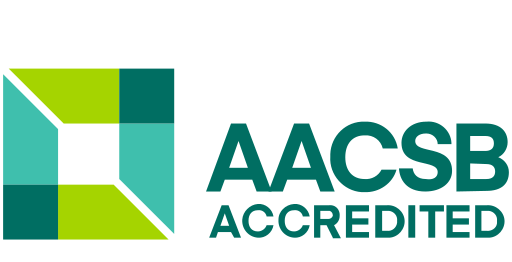
Walter E. Block and Robert McGee
Dear Colleagues who teach at schools of business:
Were you aware that our accrediting agency, the Association to Advance Collegiate Schools of Business, now requires member schools to incorporate the United Nation’s Sustainable Development Goals (SDG) into the curriculum? There are 17 of them. To meet the AACSB requirement, you only need to incorporate one of these goals, but you are free to incorporate more than one. Here is the list:
- No poverty.
- Zero hunger.
- Good health and well-being.
- Quality education.
- Gender equality.
- Clean water and sanitation.
- Affordable and clean energy.
- Decent work and economic growth.
- Industry, innovation and infrastructure.
- Reduced inequalities.
- Sustainable cities and communities.
- Responsible consumption and production.
- Climate action.
- Life below water.
- Life on land.
- Peace, justice and strong institutions.
- Partnerships for the goals.

Here’s an easy way to meet the AACSB requirement. Assign this article for your students to read: Is the AACSB Requiring Member Schools to Teach Bad Economics?
You can discuss it in class, or ask them to write a brief summary of the article—either as a nongraded requirement—or for extra credit or as part of the course grade.
You might include the following language in your syllabus or Learning Management System (LMS):
The AACSB, which accredits our business school, requires us to incorporate the United Nation’s Sustainable Development Goals (SDG) into our curriculum. Reading this article will meet that requirement.
To provide documentation that you have read the article, you are required to write a 200-word summary and upload it to Canvas (or another Learning Management System).
Again, you can give them a grade for it or you can make it a noncredit assignment that they must complete as part of the course in order to document the fact that it has been incorporated into your course.
Walter E. Block and Robert McGee

READER COMMENTS
Jon Murphy
Jan 11 2023 at 10:26am
I don’t think many of those goals are necessarily in contrast with good economics. For example, in my Principles of Micro class, we discuss at length how the Price System encourages gender/race equality (the ALchian-Williams-Sowell story). I emphasize in particular how free markets discourage waste through competition. Obviously in Macro we discuss the importance of institutions, etc.
The only two that are real objectionable are the first two goals on the list. The others are very easy to incorporate.
Of course, there’s the question of whether the AACSB should have the UN’s goal as a requirement at all. That’s a fair question. But I don’t think its inclusion necessarily requires us to teach poor economics.
David Seltzer
Jan 11 2023 at 3:51pm
Jon, excellent observation as always. “Of course, there’s the question of whether the AACSB should have the UN’s goal as a requirement at all. That’s a fair question. But I don’t think its inclusion necessarily requires us to teach poor economics.” Yes, but doesn’t the UN’s goal smack of authoritarianism? One world organism “suggesting” goals for others to adhere? Akin to Thaler and Sunstein…paternal libertarianism. A nudge from the government soon becomes a shove.
David Henderson
Jan 11 2023 at 10:33am
Thank goodness quality education is on the list. I am confident that both you, Walter, and you, Jon already do that.
Anders
Jan 16 2023 at 4:17am
Not much will change, will it? In an ideal world, the only way to succeed in business should be by creating social return well in excess of internalised profits. Our world is not ideal in that sense, but it should be the job of policy makers to minimise the extent to which that is not the case.
That should be the SDG, rather than the almost 150 or so targets that we should all, to use a term ostensibly devoid of irony, focus on through collective action.
Now that all large corporations engage in corporate social responsibility broadly speaking, it is hard to see what the SDGs add apart from creating confusion. Keep in mind that the targets themselves are a result of years of haggling. They range from the sensible (stop overfishing, reduce poverty), over the trivial (promote SDG partnerships), to the impossible (stop ALL violence against women). But they should not serve as a blueprint for public policy, let alone business management.
Anders
Jan 16 2023 at 7:45am
Read the article. Already in the abstract, it talks about “cramming…. ideological preferences down the throats” and “indoctrination”. Has the line between punditry and academic papers disappeared completely?
Comments are closed.